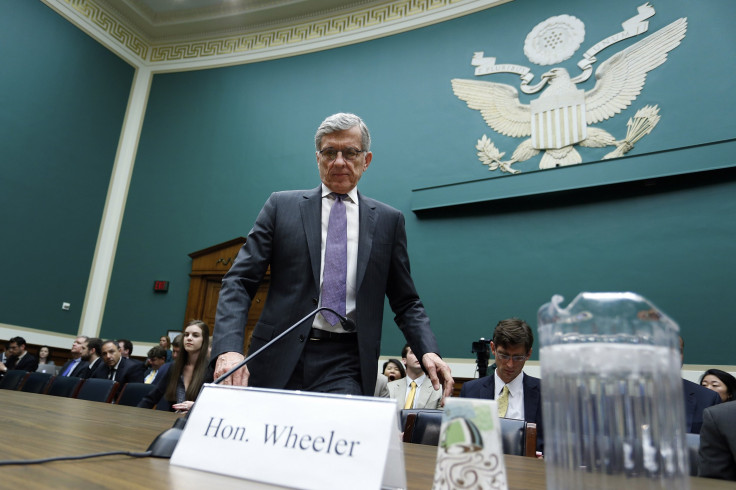Why GOP Can’t Likely Stop FCC’s Plan To Keep The Internet Open

Net neutrality is a complex, dense and, for some, overly technical issue. Nevertheless, it could impact how much consumers pay for streaming services like Netflix, and it has GOP lawmakers at odds with the administration in what could be one of the new Congress’ first big tests of its ability to work cooperatively with the White House.
The Federal Communications Commission is set to vote in February on a new regulatory framework that would classify Internet Service Providers as public utilities similar to telecom companies, restricting their ability to charge premiums for so-called Internet fast lanes. President Obama favors the plan, saying it will protect network neutrality — the notion that all data passing through broadband providers’ pipes should be treated equally.
While there are some significant differences among individual members’ positions, Republicans are broadly against the proposal — arguing that it could stifle innovation and investment at a time when the nation needs fatter Internet pipes to accommodate the deluge of traffic generated by streaming services and other content.
Prominent Republicans are threatening a number of measures if the FCC reclassifies broadband service as a public utility, which would put companies like Comcast and Verizon under closer government scrutiny.
Congressional sources made it clear to the Wall Street Journal that “all options are on the table,” including laws to prevent an FCC decision and slashing the independent commission’s budget. “The regulatory tools at the FCC’s disposal are outdated,” said incoming Senate Commerce Committee chairman John Thune (R-S.D.) in a statement. He added that the FCC’s proposals would “harm Internet innovation and investment.”
But Abraham Newman, a professor at the School of Foreign Service at Georgetown University, told IBTimes that such rhetoric is unlikely to translate into much action. Newman said the new Congress is unlikely to expend much of its fresh political capital on somethng that's not a hot-button issue like, say, immigration, for most members.
Still, Newman said there are some options available to the GOP if it chooses to take a stand on network neutrality. “Congress could get in the way of the FCC’s priorities, or they can increase the oversight hurdles for the agency,” he said. “They could also block appointments or apply pressure through financial means.”
If FCC commissioners vote in favor of the plan on Feb. 26, Republican lawmakers could retaliate by cutting the independent agency’s budget. Even a trim, however, carries the risk of political backlash, with so many Republicans representing rural districts set to benefit from FCC Chairman Tom Wheeler’s $3.9 billion plan to bring high-speed Internet access to rural areas.
Cuts could also leave Republicans open to charges of allowing big cable providers, largely unloved by a public that’s seen rates rise and service decline in recent years, run amok. Cuts “would mean the FCC would lay off,” former FCC Commissioner Nicholas Johnson, who now teaches Internet law at the University of Iowa College of Law, told IBTimes. “They would simply stop checking on people and running investigations.”
Net neutrality is not an issue that falls neatly across partisan lines, nor does it present a true David-and-Goliath scenario. Tech companies and ISPs are some of the largest contributors to both Democratic and Republican campaigns. And lawmakers acting on behalf of a cable giant like Comcast, for instance, could get fewer dollars from a Silicon Valley powerhouse such as Google or streaming specialist like Netflix in the next election cycle.
“Right now, there are no paid fast lanes on the Internet. That’s a good thing,” said Ken Florance, vp for content delivery at Netflix, in a blog post Monday. “If ISPs are allowed to sell fast lanes, competition for various Internet sites and services will become less about the value of what’s offered and more about who can pay the most to deliver it faster.”
The split over net neutrality means any laws that Congress passes to circumvent the FCC proposals would be unlikely to garner a veto-proof, two-thirds majority.
GOP lawmakers could invoke the Congressional Review Act, which is a politically difficult and rarely used law giving Congress the ability to override rules from an independent commission. But observers see that and other scenarios as unlikely. “I doubt the Republican party would put much on the line for some extraordinary legislative move,” Newman said. “I just don’t see them as unified on this issue.”
© Copyright IBTimes 2024. All rights reserved.





















